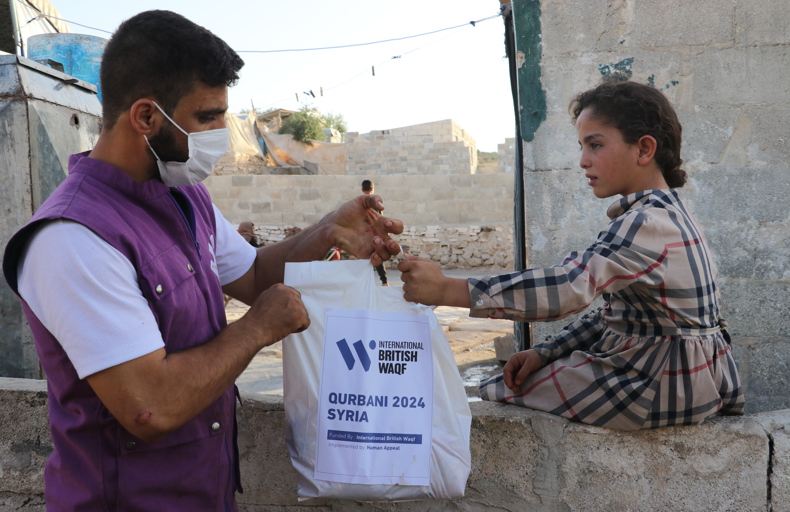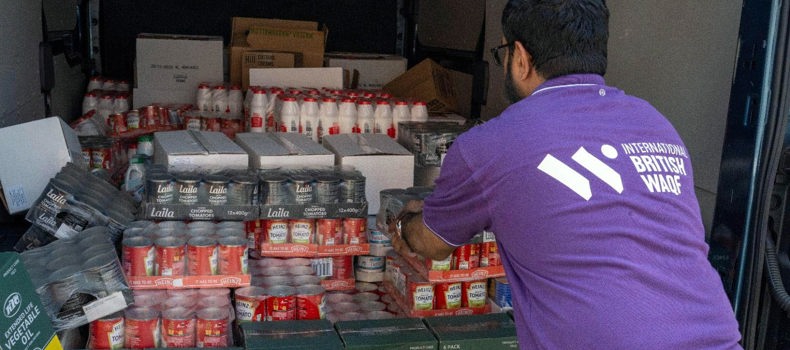Big changes ahead. Stay tuned!
Big changes ahead. Stay tuned!
Nothing here
Start typing to search
Searching..
Nothing matches
There are no matching results.
Sorry!
There has been an error.
Big changes ahead. Stay tuned!
Big changes ahead. Stay tuned!
Nothing here
Start typing to search
Searching..
Nothing matches
There are no matching results.
Sorry!
There has been an error.

Hadith About Benefits of Sadaqah
In Islam, charity is not simply a social obligation—it is a sacred covenant between the believer and their Lord. Among the most beloved forms of charity is Sadaqah, a voluntary act of giving rooted in compassion, sincerity, and the pursuit of Divine pleasure. The Hadith about benefits of Sadaqah offer deep insights into how such acts serve not only the physical needs of others but also enrich the spiritual life of the giver. This article delves into the profound rewards and transformative impact of Sadaqah, as taught by the Prophet Muhammad ﷺ. Drawing upon authentic Hadith, we explore how voluntary charity becomes a shield against calamities, a cleanser of sins, and a path to Divine mercy. We also highlight how initiatives such as those by The International British Waqf embody this prophetic legacy, allowing Muslims to give with enduring impact.
1. What is Sadaqah?
Sadaqah (صدقة) refers to voluntary charity, given without compulsion or obligation. It is distinct from Zakat, which is mandatory and calculated according to specific Islamic guidelines. Sadaqah, by contrast, is unrestricted in form and amount. It may be financial, emotional, or spiritual—such as feeding the hungry, sharing knowledge, or even offering a smile. The Messenger of Allah ﷺ said:
"Every act of kindness is charity." (Sahih Muslim, Hadith 1009)
This inclusive view encourages every Muslim—regardless of wealth or status—to participate in acts of goodness. From a drop of water given to the thirsty to a consoling word for the distressed, Sadaqah reflects the Prophetic principle of mercy permeating every facet of life.
2. The Benefits of Sadaqah in Light of Hadith
The benefits of Sadaqah, according to Hadith, transcend worldly consequences. Voluntary charity acts as a spiritual purifier, a social equalizer, and a source of immense reward in the Hereafter. The Prophet ﷺ stated:
“Charity extinguishes sins as water extinguishes fire.” Sunan al-Tirmidhi, Hadith 614)
Here, Sadaqah is likened to water—cleansing the soul of the stains of transgression. The act of giving softens the heart, invites Divine mercy, and offers an opportunity for repentance. The sadqa hadees literature emphasizes that Sadaqah:
Cleanses wealth and soul
Brings blessings (barakah) into one’s sustenance
Wards off calamities
Provides shade on the Day of Judgment

3. Hadith About Giving Charity
The Prophet ﷺ, described by Allah as "a mercy to the whole world" (Qur’an, 21:107), frequently emphasized the virtue of giving. One of the most frequently cited hadith giving charity is:
“Charity does not decrease wealth. Rather, it increases it, it brings blessings.” (Sahih Muslim, Hadith 2588)
This hadith of giving charity clarifies that spending in the path of Allah ﷻ is never a loss. What departs from the hand is replaced—often multiplied—by Allah in unseen ways. The Prophet ﷺ also reminded us:
“Protect yourselves from the Hellfire, even with half a date.” (Sahih al-Bukhari, Hadith 1411)
This Hadith is among the most concise yet profound teachings, highlighting that even the smallest charitable act carries great value if offered sincerely.
4. Hadith About Giving Charity in Secret
Giving charity privately and discreetly is highly recommended in Islam, as it preserves the purity of one’s intention and safeguards against the spiritual disease of showing off (riya'). The Prophet ﷺ said:
“Seven are shaded by Allah on the Day when there is no shade except His... and among them is a man who gives in charity and conceals it, such that his left hand does not know what his right hand has given.” (Sahih al-Bukhari, Hadith 1423)
This hadith about giving charity in secret reveals that discretion in giving is not only humble—it is elevated to a station of exceptional virtue. On the Day of Judgment, when all souls are exposed, such a person will be honored with Divine shade.
5. Hadees on Sadqa: A Source of Blessings
Another striking tradition speaks to Sadaqah’s protective power:
“Give charity without delay, for it stands in the way of calamity.” (Al-Tirmidhi, Hadith 589)
Whether facing illness, financial hardship, or personal trials, Sadaqah serves as a shield against adversity. In times of collective hardship—such as pandemics, disasters, or displacement—charity becomes a moral imperative for the Ummah. The sadqa hadees corpus affirms that giving opens the gates of sustenance, with Divine rewards often extending beyond the giver to bless their family, community, and descendants.

6. The Role of Charity in Building Strong Communities
Sadaqah is not limited to individual salvation—it is also a mechanism of social reform and upliftment. Through charity, Islam promotes economic justice, social harmony, and collective empowerment. The Prophet ﷺ said:
“He is not a believer whose stomach is filled while the neighbor to his side goes hungry.” (Sunan al-Kubra, Hadith 19049)
This Hadith reminds us that faith is hollow without empathy and action. Whether it's providing education for orphans, supporting widows, or financing healthcare, charity builds dignity and opportunity.
Organizations like The International British Waqf (ibwaqf.org.uk) channel these values through Waqf—enduring charitable endowments that provide ongoing support to causes such as education, clean water, and healthcare. These efforts exemplify Sadaqah Jariyah or ongoing charity, which continues to benefit both donor and recipient long after the act is performed.
7. Hadith on Giving Charity: Transforming the Self
The act of giving reorients the heart. It detaches us from material obsession and cultivates reliance on Allah. The Prophet ﷺ said:
“Sadaqah is a proof (burhān).” (Sahih Muslim, Hadith 223)
In this Hadith, the word burhān (proof) is powerful—it signifies that Sadaqah is the ultimate testimony of faith, demonstrating a believer’s trust in Allah’s promise over worldly logic.
Charity refines character. It instills generosity, humility, and spiritual awareness. The more one gives, the more one is spiritually nourished.
Conclusion
The Hadith of the Prophet ﷺ present Sadaqah not as a mere charitable deed, but as a spiritual elevation, communal obligation, and a timeless act of faith. Its benefits are manifold—reward in the Hereafter, barakah in one’s wealth, and tranquility in the soul.
In every age, and especially in times of trial, Sadaqah becomes a means of mercy and revival. Through sincere giving, believers draw closer to Allah ﷻ, benefit society, and cultivate a heart free from attachment to this world.
To maximize this impact, believers are encouraged to support Waqf-based Sadaqah Jariyah projects, such as those offered by The International British Waqf. These long-term endowments continue to serve the Ummah, bringing reward to the donor long after they have departed this world.
"The upper hand is better than the lower hand. The upper hand is that of the giver and the lower (hand) is that of the beggar." (Sahih al-Bukhari, Hadith 1429)
Let us all strive to be among those whose hands give—quietly, sincerely, and for eternity.
FAQs
1. What is the meaning of Sadaqah in Islam?
Sadaqah is any voluntary act of charity done purely for the sake of Allah, without compulsion. It includes financial donations, emotional support, acts of service, or words of kindness.
2. What are the benefits of giving Sadaqah according to Hadith?
According to multiple hadith about benefits of Sadaqah, it:
3. Can you share a Hadith about giving charity?
Yes. The Prophet ﷺ said:
"Every day two angels come down from Heaven and one of them says, 'O Allah! Compensate every person who spends in Your Cause,' and the other (angel) says, 'O Allah! Destroy every miser.' " (Sahih al-Bukhari, Hadith 1442)
This shows that Sadaqah invites divine increase, not loss.
4. What is the significance of giving charity in secret, as per Hadith?
Giving in secret: